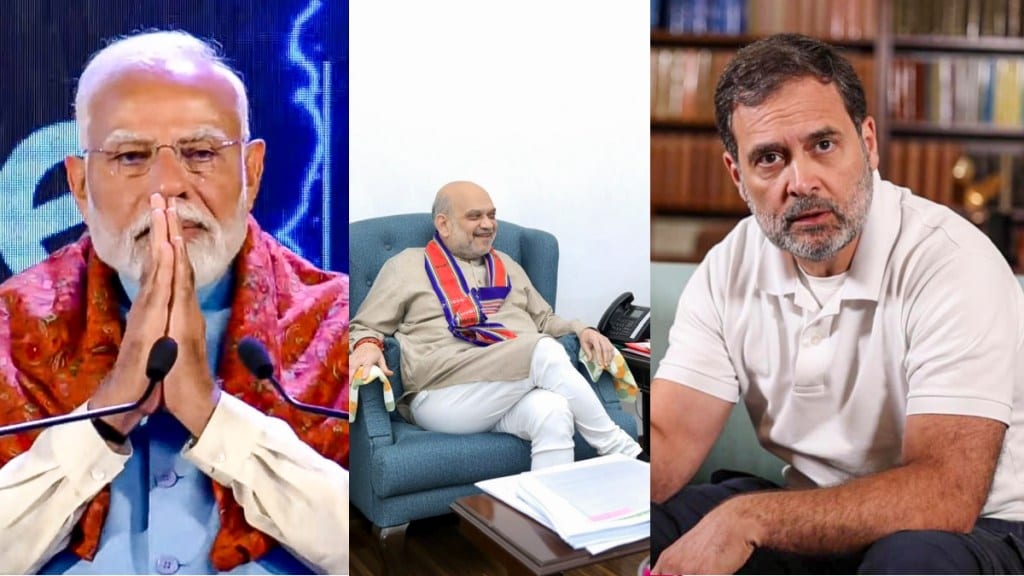With Chief Election Commissioner (CEC) Rajiv Kumar set to retire on Tuesday (February 18), Prime Minister Narendra Modi, Home Minister Amit Shah and Leader of Opposition Rahul Gandhi will convene this evening to select his successor. This marks the first time a selection panel has been formed to appoint the head of India’s election watchdog. How did the process work earlier, and what has changed? Here’s an explanation.
How were Chief Election Commissioners appointed before?
The Election Commission (EC) consists of three members: one Chief Election Commissioner and two Election Commissioners. While all three hold equal status, the CEC, like the Chief Justice of India, is considered the first among equals.
Previously, no parliamentary law governed the appointment of the CEC and ECs. Instead, the President appointed them based on the Prime Minister’s advice. By convention, the senior-most Election Commissioner—typically determined by tenure—was elevated to the role of CEC.
The current Commission comprises Rajiv Kumar as CEC, along with Gyanesh Kumar and Sukhbir Singh Sandhu as Election Commissioners. Both Kumar and Sandhu were appointed on the same day (March 14) and belong to the same IAS batch (1988). However, sources within the government and Commission suggest that Gyanesh Kumar is senior, as his name appeared first in the appointment notification issued by Rashtrapati Bhavan.
Under the old system, Rajiv Kumar’s retirement would have automatically led to Gyanesh Kumar’s elevation as CEC. But this time, the process is different.
How will the new CEC be appointed now?
The new appointment will be made under the Chief Election Commissioner and Other Election Commissioners (Appointment, Conditions of Service and Term of Office) Act, 2023. This law establishes a structured process for appointing both the CEC and ECs.
Under the Act, a search committee—headed by the Law Minister (currently Arjun Ram Meghwal) and comprising two senior bureaucrats—shortlists five candidates. This shortlist is then sent to a selection committee, which includes the Prime Minister, the Leader of Opposition, and a Union Cabinet Minister nominated by the PM.
Currently, this selection committee consists of Prime Minister Narendra Modi, Rahul Gandhi, and Home Minister Amit Shah. They will meet at the PM’s residence this evening to choose Rajiv Kumar’s successor. Section 8 of the Act allows them to consider candidates beyond the five initially shortlisted. The President will then formally appoint the new CEC based on their recommendation.
This is the same process through which Gyanesh Kumar and Sukhbir Singh Sandhu were appointed as Election Commissioners in March 2024. While Gyanesh Kumar remains a contender for the CEC post, the new law allows the government to broaden its search and possibly bring in an entirely new candidate.
Does the new Act specify eligibility criteria?
Traditionally, the government appointed retired senior bureaucrats to the Commission. The new law formalizes the qualifications, stating that the CEC and ECs must have held or currently hold a post equivalent to Secretary to the Government of India. Candidates must also be individuals of integrity with expertise in election management and conduct.
The Act also sets a clear tenure:
- The CEC and ECs cannot be reappointed.
- If an EC is promoted to CEC, their total tenure in both roles cannot exceed six years.
Why was the appointment process changed?
The Supreme Court’s intervention led to this legislative change. Between 2015 and 2022, several petitions challenged the government’s unilateral control over Election Commissioner appointments.
The Court noted that the framers of the Constitution never intended for the Executive to have exclusive authority in these appointments. Concerned about the potential consequences, the Court mandated a new selection process.
In a March 2, 2023 judgment, the Supreme Court ruled that until Parliament enacted a law, a committee comprising the Prime Minister, Leader of Opposition, and Chief Justice of India (CJI) would select the CEC and ECs.
Before a vacancy arose in the Commission, the government passed the new Act in December 2023, altering the selection committee’s composition. Instead of the CJI, the law assigned the third spot to a Union Cabinet Minister nominated by the PM—effectively giving the government the final say.
Will today’s decision finalise the new CEC appointment?
Not necessarily. The Supreme Court is set to hear challenges against the new appointment process. The Association for Democratic Reforms has petitioned against the exclusion of the Chief Justice of India from the selection committee.
The central legal question is whether Parliament can override a Constitution Bench judgment through legislation. Although petitioners sought an early hearing before Rajiv Kumar’s retirement, the Supreme Court scheduled it for February 19—one day after his departure. However, Justice Surya Kant assured that the Court’s ruling on the Act’s validity would still apply, even if an appointment is made in the interim.


